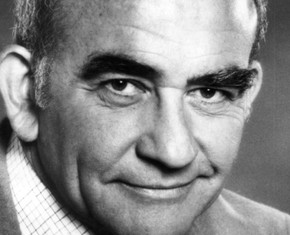The views expressed in our content reflect individual perspectives and do not represent the authoritative views of the Baha'i Faith.
“We are all captives of time,” a friend once said to me. Now, as a “sixty something,” I wonder and contemplate about my long-gone days as a “twenty something.”
Reflection is a part of growing older, and hopefully wiser, in that there is often more unstructured time and energy to think back on life, the choices made, the actions taken and their consequences.
These reflections are not always pretty sights in my mind’s eye. There were times of acting badly and boldly, of narrow escapes and unspeakable joy, of procrastinating mightily and lingering pleasantly, subsequently enduring the results with chagrin and gratitude.
Recently, during the annual Baha’i Fast, I watched a video of talks by the late, wise and wonderful Mr. A.Q. Faizi—during his visit to San Francisco, California in 1974. My recollections of those talks took me back to when I was 21 years old and had just become a member of the Baha’i Faith. The Baha’i writings say the period of youth is a special and powerful time in one’s life. Indeed, Abdu’l-Baha, the eldest son of Baha’u’llah, the founder of the Baha’i Faith, prayed:
O Lord! Strengthen these fragile seedlings that each one may become a fruitful tree, verdant and flourishing. – Abdu’l-Baha, Baha’i Prayers, p. 252.
As a youth, I was certainly fragile and in need of a spiritual framework for my life that made sense. I had outgrown the dictates of my parents’ church where I had been confirmed at the age of 13. My studies at Cornell University left me with many questions about the dichotomies of religion, politics and history. Returning to my hometown of San Francisco, my parents expected me to get a “good job,” to work, to be financially independent and to take care of myself. In the mid-1970s, a twenty-something life of partying, sleeping around, and conspicuous materialism did not appeal to me—nor did it seem in my spiritual interest. Always asking questions and seeking enlightenment, I wondered: “What is my life purpose? What can I commit my life to? And why am I here?”
My parents instilled in me a firm belief in a Supreme Being, and knowledge and pride in my African ancestry. My family gave me the ability to discern and to rise above the unique challenges I faced being “young, gifted and Black.” Yet, the church I grew up in expected allegiance without discernment, obedience without questions. I sought a spiritual community that guided my spiritual path and valued critical thinking. While my parents were devout Christians, they wisely encouraged all six of their children in their chosen spiritual paths. As the oldest, I led the way in questioning my spiritual roots.
The writings of Baha’u’llah served as a guiding light for me as a questioning youth. Passages such as this one had a marked effect on me:
Be united in counsel, be one in thought. Let each morn be better than its eve and each morrow richer than its yesterday. Man’s merit lieth in service and virtue and not in the pageantry of wealth and riches. … Dissipate not the wealth of your precious lives in pursuit of evil and corrupt affection, nor let your endeavors be spent in promoting your personal interest. Be generous in your days of plenty, and be patient in the hour of loss. Adversity is followed by success and rejoicings follow woe. – Baha’u’llah, Tablets of Baha’u’llah, p. 138.
The way in which Baha’u’llah clearly set forth his identity in The Book of Certitude—using scripture from the Bible and the Qur’an to expound the concept that God has revealed His teachings to humanity progressively throughout history through a series of divine messengers—made complete sense to me, as someone who loved Christian songs like “Jesus loves me, this I know, for the Bible tells me so,” and who deeply believed in the Messiah. While investigating the tenets of the Baha’i Faith, I read Baha’u’llah’s prayers and meditations, and found out that one of the 19 months of the Baha’i calendar is called “Questions.”
During the tumultuous years of my youth, Baha’u’llah’s guidance to rely upon God, and to love and serve humanity, infused my life. Baha’u’llah also referred to me—as a person of African descent—as “the pupil of the eye.” His divine perspective helped me to see above the racial discrimination I experienced and to persevere in his exhortation that we always turn toward God and “[cling] to the hem of the robe to which have clung all in this world and in the world to come.” – Baha’u’llah, Baha’i Prayers, p. 239.
The brilliant love, patience and forgiveness of the words of Baha’u’llah served as a “straight path” for me to follow. They were a source of solace, comfort and spiritual resolve for me as a youth. They are part of a framework designed to help youth achieve their full potential and to prepare for a life of service to humanity. In his writings, Baha’u’llah reiterated the nature of God as the Almighty, the All-Loving, the All-Merciful and the All-Forgiving, and taught that every human being has inherent nobility:
O Son of Spirit! Noble have I created thee, yet thou hast abased thyself. Rise then unto that for which thou wast created. – Baha’u’llah, The Hidden Words, p. 9.
Reading the writings of Baha’u’llah as a youth, I realized my human life had a divine purpose, and that it was my choice to spend my time developing the spiritual capacity to live a fruitful life based on spiritual values, or live a material life based on evanescent values.
As a young person, time was relative. There always appeared to be time to grow and to learn. And if I knew better, I believed I had the divine capacity to do better. In one of his prayers for youth, Abdu’l-Baha wrote:
O Lord, Make this youth radiant, and confer Thy bounty on this poor creature. – Baha’i Prayers, p. 254.
Being a young Baha’i was more of a bounty than a test. Despite the ups and downs, my life since becoming a Baha’i at age 21 has been enriched by my deep and lasting friendships with a diverse group of human beings from around the world. As I age, the certitude of the words of Baha’u’llah about the soul’s eternal journey through the worlds of God give me solace. Having experienced the deaths of my beloved parents, dear loved ones and friends, it is a cause of comfort and joy to know that the love and friendship we shared in this world is eternal. I know that the laughs, the music and the deep spiritual bonds we forged as youth will transcend this material world. As Baha’u’llah said:
Behold, all the people are imprisoned within the tomb of self, and lie buried beneath the nethermost depths of worldly desire! Wert thou to attain to but a dewdrop of the crystal waters of divine knowledge, thou wouldst readily realize that true life is not the life of the flesh but the life of the spirit. For the life of the flesh is common to both men and animals, whereas the life of the spirit is possessed only by the pure in heart who have quaffed from the ocean of faith and partaken of the fruit of certitude. This life knoweth no death, and this existence is crowned by immortality. Even as it hath been said: “He who is a true believer liveth both in this world and in the world to come.” If by “life” be meant this earthly life, it is evident that death must needs overtake it. – Baha’u’llah, The Book of Certitude, p. 120-121.
Today, I have tremendous empathy for youth and I honor their capacity, resilience and ingenuity. Blessed to be the mother of two young men, I am well aware of the many significant, life-threatening challenges youth face: the quality or cost of a good education; finding well-paying, challenging employment; navigating identities of race, gender and class; finding a life partner; raising healthy, resilient children; and living free from violence, rampant materialism and the effects of climate change. Youth are at the vanguard and the crossroads of our evolution as human beings on this planet. At whatever age we are now, in whatever part of the world, we can constantly pray for and offer support for youth. Here’s a prayer by Abdu’l-Baha which I like to offer for this purpose:
Bestow upon him knowledge, grant him added strength at the break of every morn and guard him within the shelter of Thy protection so that he may be freed from error, may devote himself to the service of Thy Cause, may guide the wayward, lead the hapless, free the captives and awaken the heedless, that all may be blessed with Thy remembrance and praise. – Baha’i Prayers, p. 254.
















Comments
Sign in or create an account
Continue with Googleor